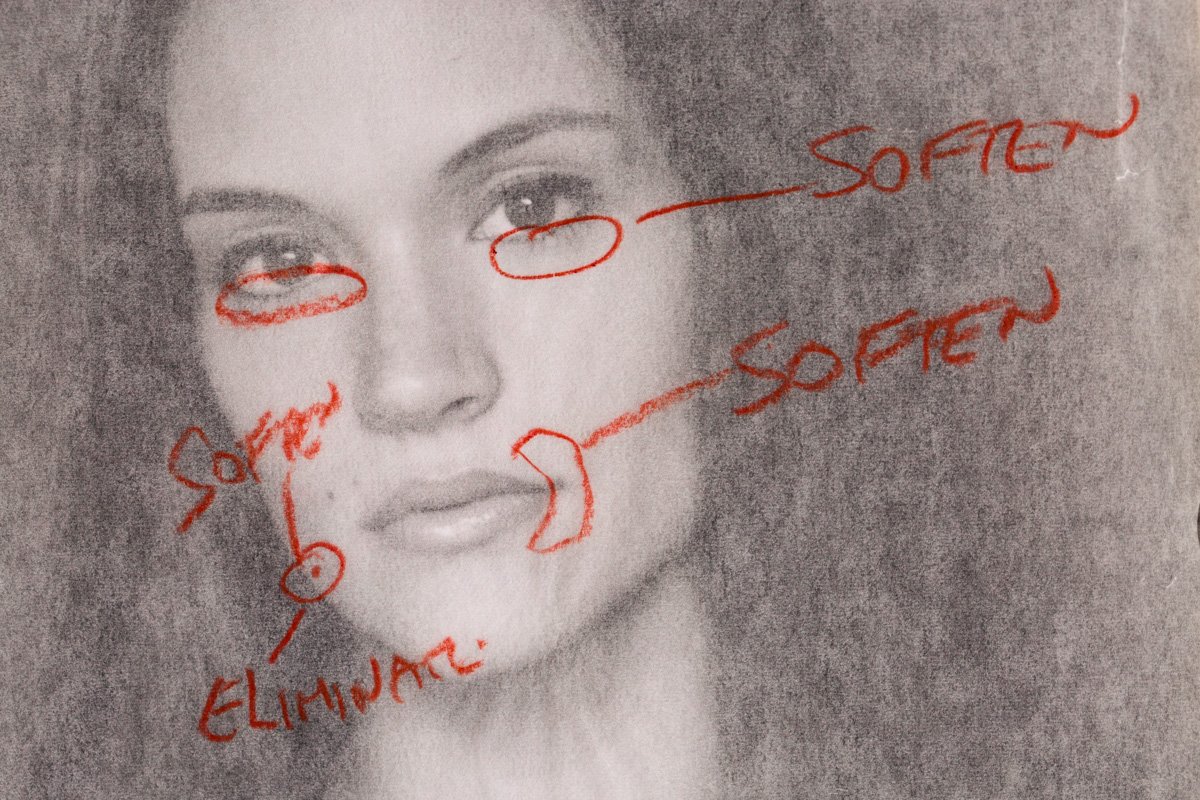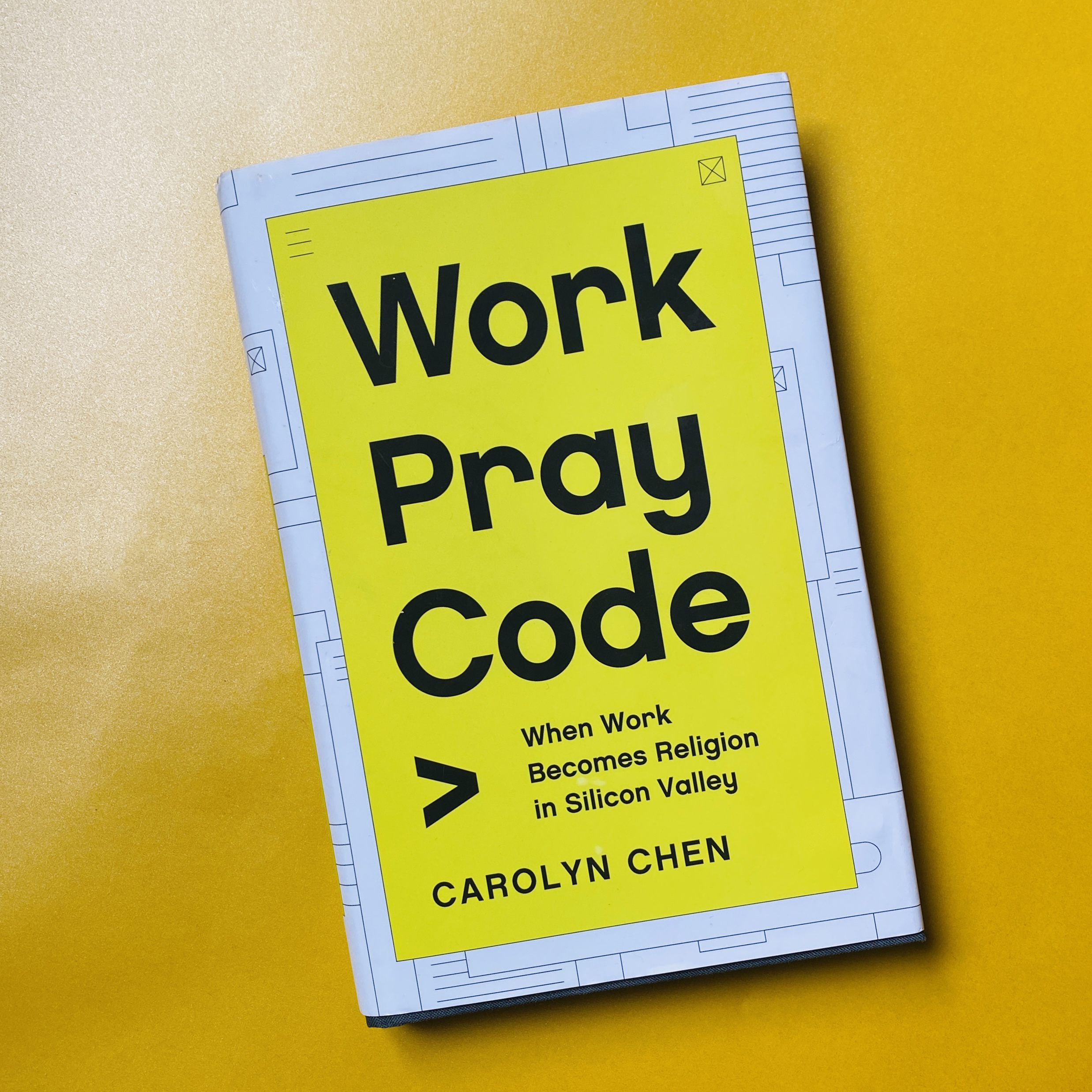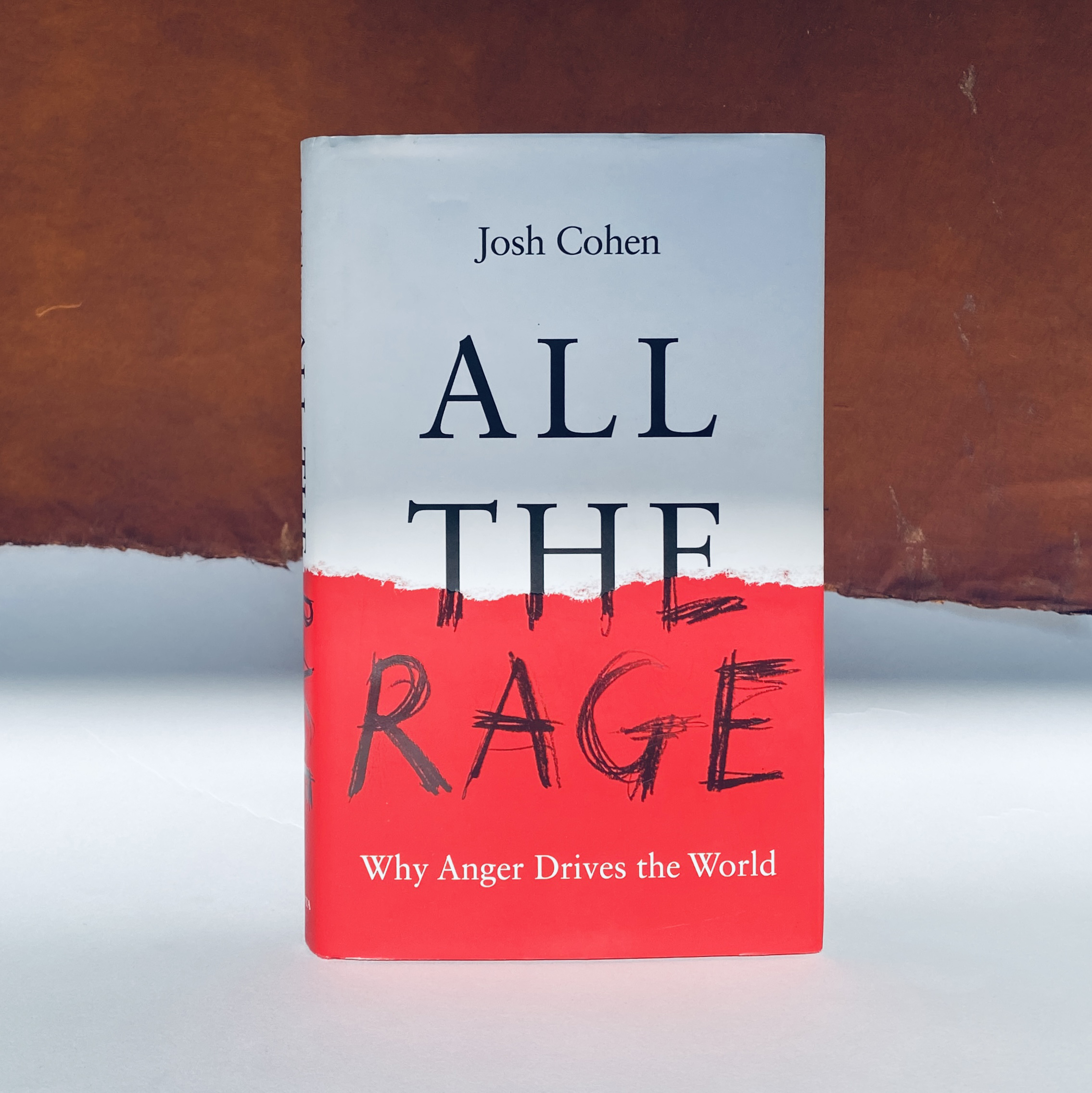"Even as a young girl, it was very obvious to me that my body - and the way people viewed my body - was going to be part of my experience as a human on this planet. "—Jamie Schofield Riva, in our interview on the power and scrutiny of beauty.
The AI Revolution: An Interview with Boris Eldagsen on Winning (and Refusing) the Sony World Photography Award
Boris Eldagsen has been a photographer for thirty years, and is no stranger to success: In addition being an educator and lecturer, he’s exhibited and published widely. So it should come as no surprise that he won the Sony World Photography Prize 2023 in the “Open/Creative” category. It was, however, unexpected that he publicly refused the prize, citing the fact that the work was AI-generated and describing his submission as a “cheeky monkey” effort to determine if awards were prepared to handle works like his, concluding that they were not ready. We speak in this interview about what happened with the Sony award, his ongoing body of work with AI, and what it means for photography.
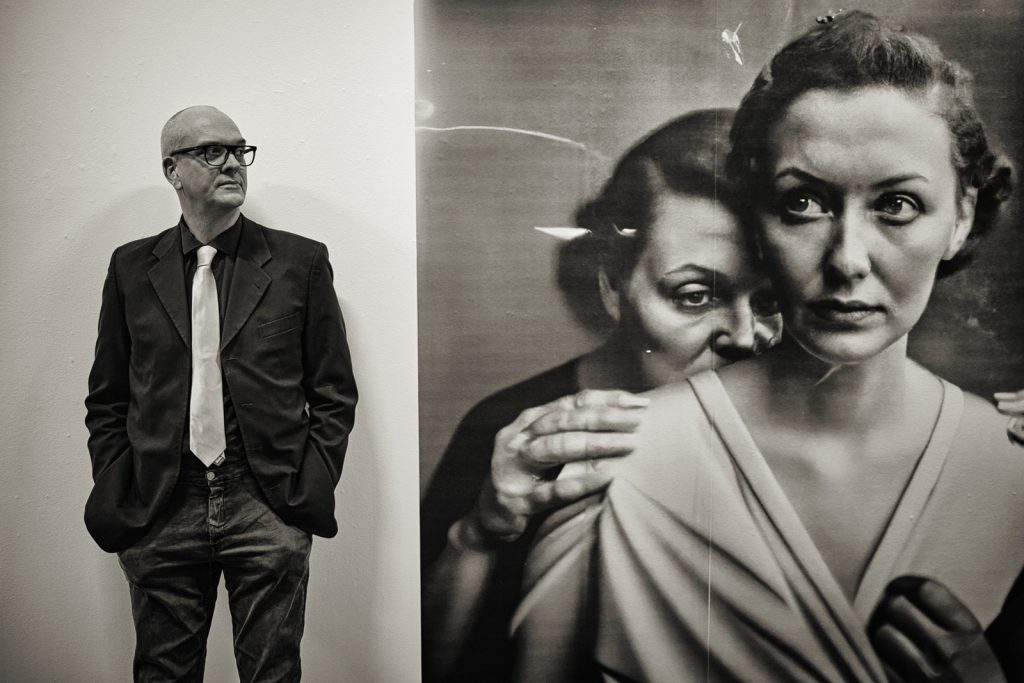
Tell us about submitting the AI work to the Sony award. Did you submit with some intention in mind?
I did submit with some intention. Last winter, I sent AI-generated images to a couple of competitions, just to see if they were ready for it. There were a couple acknowledgements – I thanked them later for choosing an AI-generated image and they were all quiet because they did not really want to talk about it. These were just minor things, so with Sony, I did not expect that the image will get that far. You have to take into account that the image was produced last year, in August 2022, so I was using DALL-E 2. Now that the story is everywhere, people are commenting on social media, “Oh, it’s obviously AI, look at the hands.” Well, yeah, it’s not Midjourney 5!
CREO, which is the business running the award, contacted me in January asking for more information about my web page about my Instagram account about my history of exhibitions. I gave them all they wanted. My guess is they did not look at it, because if you look at my web page and my Instagram account, it’s obvious because I’ve been posting AI images since last summer. Then, in mid-February, they contacted me again to say congratulations, that I was the winner of the ‘creative’ category and asking if I’d like to come to London for the ceremony. I then sent them an email back saying thanks for the selection, and it’s very important that you are clear that this image is AI-generated because it will create an outroar. I’m very active in the German scene as somebody who does talks and presentations about the topic, and I think it’s very important that the photo scene is aware of what is possible technically, that they understand the photographic language has become a free floating entity separated from photography and has now a life of its own, and in my opinion, that the future of photography is defined by AI and not by photography. I said to them that these are all things we should talk about, and I offered to help with that conversation because it’s complex; There needs to be debate. They responded to say basically that it was fine that it was AI-generated, but there was no response to my suggestion of having a discussion. And I thought, well it’s up to them, but the discussion is going to happen whether they want it or not.
So, you were clear that it was AI-generated imagery? Was there some indication in the title or caption about it?
In the application, no, it was just the title and the series—nothing else. But I submitted three images, which, like I said were created in 2022 with early DALL-E, and the other two were so obviously generated.
None of this was planned. It just happened this week—it developed. It’s just an initial attempt of me being cheeky and saying, “You should be prepared for this. I have looked at your regulations, you are not prepared for it. So, let’s just make you aware that you need to be prepared in the future.” Even when they selected my image and I told them about the nature of the work, it could have developed in a totally different direction. But they chose to be silent about it, and not to communicate it is AI-generated, and not even to communicate this when people inquire about the work, and I think that’s wrong.
Did you try to emphasize to them again the importance of stating the work is AI-generated?
Yes, because they got more inquiries about my work – because the German press knows my work and knew exactly what it was – and so the CREO PR executive asked me for more information and I sent them the old statement that is still on my webpage, making it clear how the image was produced. But they did not use my statement, nor explain why they didn’t. Instead, the official statement they gave was:
“Dear (…), Many thanks for your inquiry. Please find below a quote from Scott Gray, Founder and CEO of the World Photography Organisation: ‘As a medium photography has always been at the forefront: constantly adapting and evolving, it has a singular ability to transform itself and push boundaries. We are interested in photography as an art form, and within the Sony World Photography Awards we have our Creative categories in the Professional and Open Competitions which welcome photographers to experiment and explore the dynamism of the medium. With technological advancements, a wider audience of creators are engaging with lens-based work and we look forward to seeing how this can expand the reach and impact of photography.’ Kind regards”
They gave no clear position about AI. They could’ve used this for so much positive PR. They could’ve used it to their advantage, and they didn’t.
Meanwhile, I was getting many messages from photographers regarding the nature of my work, and hearing from people who were making inquiries of the photo award that they weren’t getting any response, so I said to CREO that this is wrong. You cannot award an AI-generated image in a photo award and not talk about it—it needs to be clearly communicated and used for good, to speed up the discussion in the photo community which is desperately needed. Finally they suggested that we do an interview on their blog, but then weeks went by and they eventually said there was no time and it wasn’t going to happen. So, I thought, this is basically just a business that is interested in making profit. They don’t care about the photo community. They’re bad in communication and they’re bad in risk management.
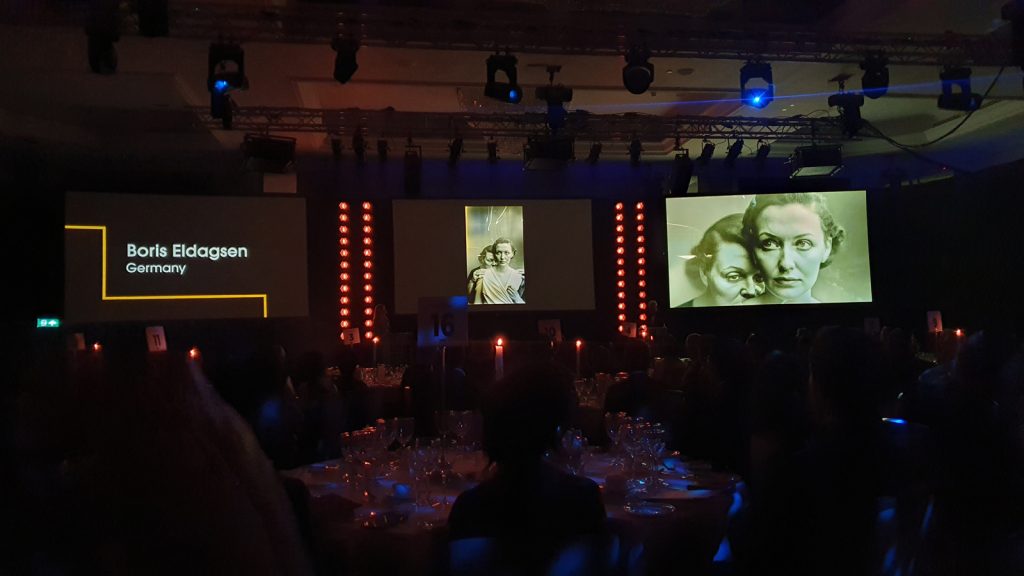
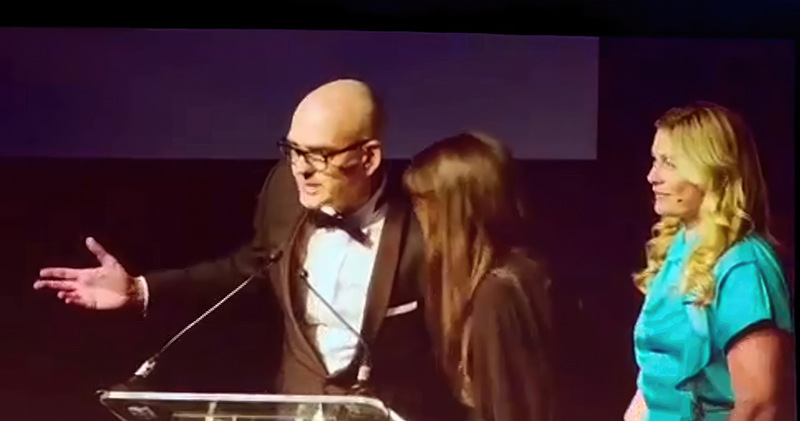
Why was it important to you to refuse the prize if you’d been clear about what it is?
Because it was the third time that I realized nobody would like to talk about it and it was so bad how the organizers treated all of that. From a PR perspective, it was very unprofessional and it shows they had no interest. I thought since I was a winner, I might have a chance to say something about it at the awards, but only the overall winners were invited on the stage, so that didn’t include me as a category winner. I’d spent my own money to be there: It’s a black tie event, so I had to rent a tuxedo, I paid for my travel and the hotel… we even had to pay for our drinks at the open doors reception! When I realized that I had no stage time, I was very confused and didn’t know what to do. It took me 45 minutes at the dinner break to fight with my inner demons to decide to be rude and impolite because I’m usually not like this. I have always been very shy. So, before they started the main program, after the dinner break, I thought this is the moment now. I just got on stage.
Although, one thing I would like to say to the two ladies that had to cope with me interrupting them on stage: I’m sorry. It’s not what I usually do, but somehow there was no other option. It is kind of unfair, me being 1.90 meters tall, going up there and taking the microphone. What could they do? They asked me politely to stop and go away, which I did after I said what I wanted to say. So that’s what I would like to say: Please excuse me.
What was the reaction?
I sat down again and then it just continued like nothing had happened. The show must go on. I stayed until the very end—no one from the organization approached me. When I got back to my hotel that night, I sent an email again to the organizers with my statement but so far, I haven’t gotten a reply to this email. The next morning I was just gone from the webpage. I walked to Somerset House, where the exhibition was opening at 11:00, and my image was gone. Like nothing ever happened. I think it is called “ghosting”.
But my image is out there because of the announcement four weeks ago. Right now their behavior is disappointing the whole photo community. It is in their interest to talk about AI because if you look at the award winners, they have such a focus on documentary work. If you then think ahead to next year, they will have so many fake images in sports, in nature, in portraits. They need to set up a system to cope with this.
But news is traveling: as of today, my post got more than 600 shares and I got a lot of press inquiries and messages. It’s kind of like a tsunami of emails and messages.
What type of tsunami?
It’s very positive, like 98% of people saying thank you. It shows that it was worth doing all of this.
From the perspective of the photo community, what do you think is the conversation that should be had?
I think it’s very clear that we need to come up with a name for synthetic generated images that look like photography. I’ve heard some interesting suggestions—some good, some bad. The best proposition so far, which I have from somebody commenting on my social media accounts, is promptography. I liked that a lot. It tells you that it’s something else, and it should not be mixed in the same category. We need to be clear to say it is not photography. It’s using the photographic language. With the same tool, I can use the language of painting, I can use the language of drawing, I can use the language of 3d animation… the options will become more and more. It’s an explosion since last summer, and by the end of the year, we can’t know where we’ll be.
I know both sides: I have been a photographer for 30 years. I love AI. I’m going to continue with AI. And I use my skills as a photographer that I acquired in those 30 years. But most of my friends are photographers and photo artists. It’s something that concerns them. What I’m doing now is basically for them so I hope it works.
As a photographer, are you concerned with the impact of AI on photography?
I am concerned. I also think that it is not fair that the training material for AI was taken without asking people and I think that needs to change. Right now, as far as I am informed, it is considered to be legal. But there’s a difference between being legal and fair. There are legal cases that are going to decide if that is still the case or not. Legislation will take years, however. If someone is waiting for laws to help them now, it won’t help anytime soon.
As someone who knows the possibilities of those platforms – and it’s more and more on a weekly basis – it’s clear that you can’t escape. Once my image is shown somewhere, anyone can take a picture and can use it for AI, and there is nothing I can do about it. I don’t see a technical solution to change this. And this is something that cannot be traced.
I see myself as a realist, saying: here’s the situation, Pandora’s box has been opened. It’s a huge industrial revolution. We will have an AI-fication of all parts of our life and jobs. I see the downsides of AI, I see the problems for democracies—that photojournalists, who are needed for democracies, will be flooded with fake images and it will be a problem for the citizens to differentiate. I see all of these problems, but at the same time, as an artist taking this as a reality, it is something I just love doing. I’m free of material restrictions that I had in the past—the gear, the location, the models, whatever. I always created images out of myself: It’s more an inner journey than an outer journey. And with AI image generators, the material you work with is your knowledge and your skills. So, for the first time in working with something like this, age is actually a plus.
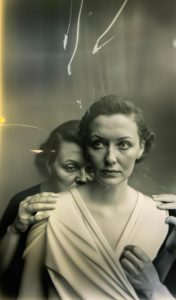
What do you think it says that your image was selected?
Well, it says firstly, there’s something in the image. Many people say to me, “Wow, it’s not photography, but I like it.” I’m a big fan of Roger Ballen and I have been his assistant in digital things for the last four years, and he was the first to respond very positively to my AI-generated images, including this image. He says it’s a great image, and that he doesn’t see that many great images and that he doesn’t care how it is produced.
I won in the ‘creative’ category, so there’s a lot of manipulation allowed. I’m curious about the person judging. Maybe he was up late and tired. Maybe he didn’t know anything about AI-generated images. Maybe he got angry about it. I don’t know.
It seems almost like an activist role that you’re taking in your decision to so publicly refuse the prize. Do you see that as a possibility?
I haven’t thought about it before but somehow, I became this over the last week. I see my role as somebody who is passing on knowledge and awareness. I have been teaching at universities and art schools for 20 years. I have been working in digital marketing since 2000. I have been working as an artist since the late ’90s. It’s all in there.
I’m happy to play a role in this, but it’s not just about me. I mean, it’s not like it gives me any advantages to do this. I have to tell you that this one hour dinner break during the ceremony was the worst time in my life. It was like my younger self and my older self having a battle; it was like psychotherapy.
Well, maybe it wasn’t your intention, but since you refused the prize and have been hit by a tsunami of praise and outreach from journalists, it sounds like you are getting something out of it.
Yes, but this is just the start. I don’t know where it’s going to lead. We’ll see.
If you look back at all the stuff I’ve done in Germany, I’m very engaged in Deutscher Fotorat (German Photo Council), which is a new organization that’s like an umbrella for the photo associations in Germany. I’m the head of digital for Deutsche Fotografische Akademie, which is the oldest associations of photographers in Germany, 104 years old, and what we do is to talk about photography as an artistic medium. There’s a task force on AI with lots of photographic associations, and in the past months, each of us had been making a position from the point of view of their photographic corner, and now we are trying to publish an overall Fotorat position paper on AI. I also helped the photojournalists in finding their own opinion by doing a presentation for them about the impacts and options to create fake toxic documentary today. I’m still a citizen that loves democracy and that sees it under threat.
I became an expert, but that was not planned. The reason I got deep into AI is basically quite sad. I had a long-distance relationship with my girlfriend for some years before she moved here to Berlin in August. And six weeks after that, she was diagnosed with cancer. It came out of the blue. I spent half of my day in hospitals in doctor’s waiting rooms. And playing on my phone was the only thing I could do to be creative. Then I started getting requests for interviews and presentations, and it just kind of developed into something full-time. So, this is what puts me in this position as an expert in Germany. I’m doing all of this because I really care.
What is it you really care about?
I care about the problems it’s going to create for my photographer friends, about their fears of not being able to pay their bills, because I see that many of the professional jobs are taken away and replaced by AI. And I see that also photojournalism is under attack, not only because the fake images, but also because photojournalism is paid badly so many journalists need to do commercial jobs to support themselves, and if the commercial jobs become less and less, how can they continue to be photojournalists? These are things I care about. I care less about the part of photography that is hardcore commercial, advertising stuff. I think democracy can live without that. That’s capitalism.
I think photographers can use what they know to create a workflow in which AI plays a certain part because two-thirds of the elements of a prompt relate to your knowledge and experience. With this knowledge, I think they can survive this storm. It’s even possible that this creates a lot of new jobs as well. As we see from the past, it’s awful when an industrial revolution gets rid of many, many professions. Digital printing replaces the printer and so on. You will not be able to stop it.
I try to see the complexity: I see aspects which I just love, like what it does for me as an artist is great, and I see the downsides for democracy and for the photo world. I have no idea where this is going to lead, but my belief is that we need to share knowledge and opinions and democratic discussion. It needs to be open it needs to be done. We can’t stay silent.
See more of Boris Eldagsen’s work on his website, and read more about his refusal of the SWPA 2023.

